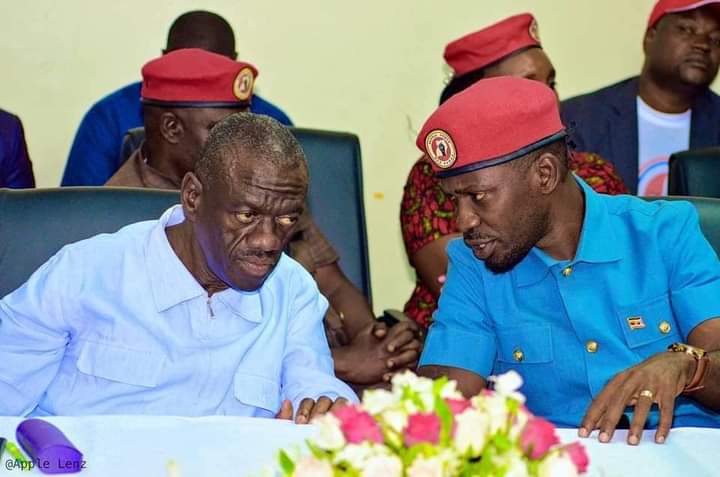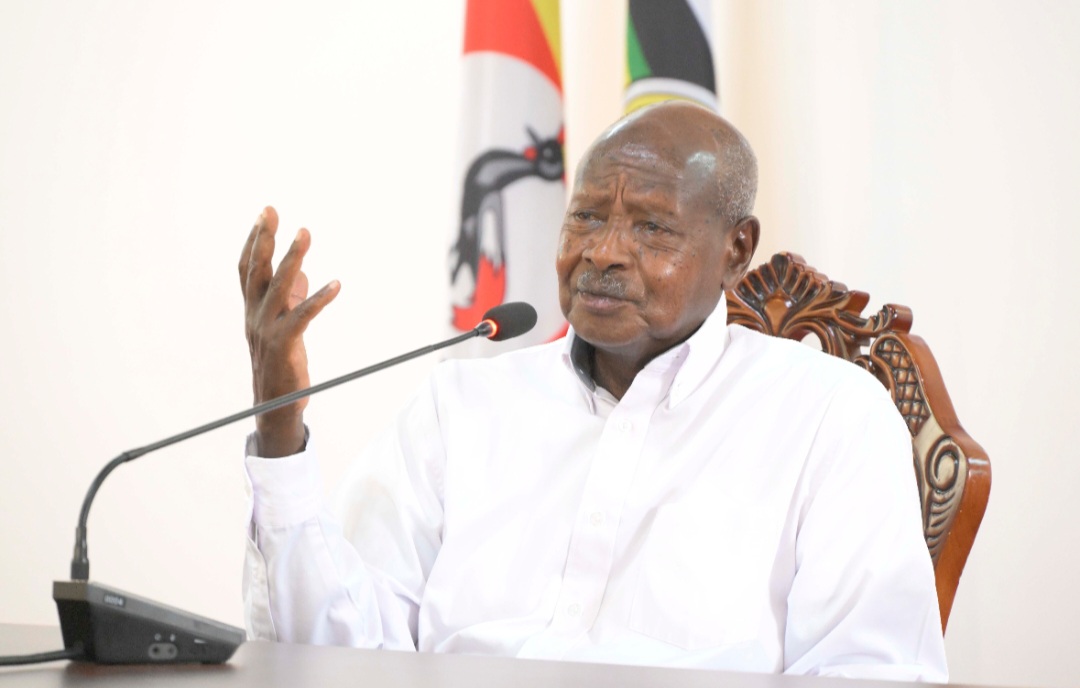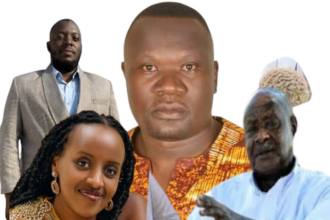In Africa’s political history, coalitions have always been essential to toppling the ruling classes both before and after independence. Regardless of their political beliefs, these alliances have always assisted in uniting the opposition’s members to form a stronger force. However, their primary objective has been to topple the current government, which has produced numerous benefits in the past and even now.
The recent events 2010 in Ivory Coast show that honesty and strong alliances can lead to success. That year, the country’s two main opposition leaders, Ouattara and Badie, formed an alliance that supported former IMF official Alassane Ouattara’s bid to unseat President Laurent Gbagbo in the second round of the post-war election. This alliance proved to be a decisive factor in the election outcome.
Despite not having an alliance, Gbagbo was still seen as a formidable opponent by opposition politicians and their supporters. However, the combined efforts of the opposition demonstrated the agility of the electorate and instilled a strong belief that changing the government was a viable possibility. This belief grew stronger in the eyes of every Ivorian and indeed it came to pass. This is what Ugandans yearn for from their opposition leaders.
Recently, Senegal became an exemplar of successful elections that Uganda’s opposition should learn from. For the first time in many years, Senegal did not require a second run-off election. This was due to the opposition’s alliance that supported Bassirou Diomaye Faye, who won against Amadou Ba despite the latter’s significant government backing under President Macky Sall.
In that election, there were over 19 candidates in the race, including one woman, probably the highest number in the nation’s history, however, a couple dropped out to support Bassirou Diomaye Faye and indeed their support worked.
A question arises regarding whether the events that occurred in Senegal earlier this year or in Ivory Coast 14 years ago, could occur in Uganda. The question is whether the opposition in Uganda can unite and challenge the rule of President Museveni, who has almost been in power for 40 years and has a strong grip on the country’s government structures, from the Judiciary to the Electoral Commission.
Nothing beats unity, thus whether the answer to that question is yes or no, it will be quite simple to remove Gen. Museveni. Gen. Museveni has witnessed and tested the strength of unity, and he makes it abundantly evident in his writings that throughout the five years of the Bush War and overcoming all obstacles, unity was the guiding principle. As such, he is aware of its beauty and may take steps to prevent the opposition from realising the power of unity.
It seems that the opposition in Uganda is struggling to unite against the current president, Gen Museveni. Despite the urgency of the upcoming election, the opposition leaders seem more focused on attacking each other rather than working together to address the issue of removing Museveni from power. This disorganization and infighting may be seen as an advantage for the current regime, and it appears that the Messianic politics that have plagued the opposition in the past continue to hinder any attempts at unity.
Uganda’s opposition is mired in confusion and internal strife as it negotiates the country’s political terrain. The political landscape of the nation is becoming more and more divided, and this makes it difficult for the opposition groups to work together and coordinate efficiently, which would hinder their ability to overthrow the current Gen Museveni as a whole.
The opposition’s fragmented structure poses a threat to its influence and ability to provide the voters with a cogent alternative perspective in the face of mounting dissatisfaction and demands for change.
The growth of varied beliefs and strategies among Uganda’s opposition factions is a major element leading to its disarray. Conflicting agendas and internal turmoil have resulted from disagreements on important topics including leadership, policy priorities, and tactics, which have affected both established political parties and grassroots movements.
The chances of the opposition putting up a strong fight against the ruling party are decreasing every day. This is due to the lack of a cohesive front and the inability to provide an engaging story that connects with the public. The current state of the National Unity Platform (NUP), Democratic Party (DP), and Forum for Democratic Change (FDC) the main opposition parties is worrying. Members of these parties are attacking each other through the media over petty issues that could be solved internally. These petty issues have now turned into verbal wars causing further problems within the opposition and widening the fractures within.
The ongoing conflict between Dr Kizza Besigye, Erias Lukwago, Ssemujju and others at Katonga Road against their long-time acquaintances Patrick Amuriat, Nathan Nandala Mafabi and others at Najjanankumbi appears to be a battle within the FDC party. It seems like only a prophet like Isa or Muhammad would be the only ones to reconcile the two factions, as their disagreements have reached a point where reconciliation seems impossible.
Meanwhile, the Principal at Magere, Robert Kyagulanyi, along with his social media Army, has turned guns against some of his party lawmakers such as Mathias Mpuuga, Medad Lubega Ssegona, and Abed Bwanika. He has accused them of being government moles and corrupt gluttons, creating animosity and mistrust within the party. This has made it difficult to convince some Ugandans that the opposition can work together towards their common goal of removing the current regime given their nature in conflict resolution.
The Democratic Party is also in a state of disarray and facing a mass exodus of its members to the NUP, this only would be an obstacle for DP to work with NUP because almost half of NUP intellectual lawmakers are former DP members. In simple terms, DP sees NUP as an opponent whose aim is to siphon its party members, so cooperation may be difficult.
Selfishness and Greed for heroic
In all case studies where alliances have worked to overthrow the ruling governments that have been in power for a long time, the element of selflessness has always been the strong bond among all the members of the opposition. In Senegal’s case the top opposition leader, Ousmane Sonko had to give in for Diomaye Faye.
Yeah, he was not allowed to contest but even when he was released from prison the unity he demonstrated was visible even during the campaigns he demonstrated maximum respect for Faye and ordered his supporters to vote for Faye, urging them that voting for Faye was like voting for him. (An akin to Haji alagidde tuwee Besigye akalulu a slogan that brought Dr Kizza Besigye onto Uganda’s political scene in 2001, This slogan was coined by Haji Nasser Ntege Ssebagala, who was in jail in the US during the election. He asked his supporters to vote for Besigye.)
Now in Uganda, this is still a very big problem, in the last elections Dr Besigye failed to support his party candidate Patrick Amuriat and up to now nobody knows the right answer to why he did not. The question of deciding who can lead the entire opposition in Uganda is still a big task because everyone wants to be seen as a hero who ended Sabalwanyi’s reign of 40 years.
In 2015, the opposition Democratic Alliance (TDA) failed to choose a single candidate to challenge Gen Yoweri Museveni in the 2016 presidential election after nearly a week of setting and holding a series of meetings. Former prime minister Amama Mbabazi of the Go Forward Team and Dr. Kizza Besigye of that time’s biggest opposition party in Uganda, FDC were the two front-runners for the alliance’s leadership position.
Even though seven of the nine entities that comprise the alliance favoured Mbabazi as the consensus candidate, Dr Besigye refused to yield, according to Mao Nobert, head of the opposition Democratic Party, who also advocated for Mbabazi’s candidature. This is the reason the alliance was unable to come to a consensus. However, Besigye’s followers felt that he had to lead the coalition as the front-runner due to his widespread appeal.
Currently, we have Robert Kaygulanyi (NUP), Dr Kizza Besigye (FDC) is still around, Gen Mugisha Muntu (ANT), Joseph Kabulate (NEED), Patrick Amuriat (FDC), Norbert Mao (DP), Jimmy Akena (UPC), Asuman Basalirwa from JEEMA can these eight select one who can lead them or can they pick someone else not among them to lead and they support him/her?
The question is likely to be no because some of them believe they can win Gen Museveni without alliances, this could be true but the power of unity is hard to overturn, like how past wins have been overturned. If it is so that the opposition has been winning, their wins have been robbed because there was no unity. Unity is always a nightmare in the eyes of ruling regimes nothing has ever overcome the power of unity. All the authorisation rulers that ever walked on this earth have not overcome the power of unity, the opposition must not overlook this soft-point in every great man’s reign.
However, as per the current state of the opposition, alliance seem to be very hard because of ego, pride and selfishness in some members. Secondly, the element of making opposition politics a career is also still a big problem, so people with such a mindset will always sabotage alliances and will always cause disorganisation in the opposition comp.
In this confusion, an important question needs to be asked: Will leaders like Jimmy Akena (UPC), Robert Kyagulanyi (NUP), Dr. Kizza Besigye (FDC), Gen. Mugisha Muntu (ANT), Joseph Kabuleta (NEED), Patrick Amuriat (FDC), Norbert Mao (DP), Asuman Basalirwa (JEEMA), and others be able to come together and support a single candidate for leadership, or will they take a different route and maybe choose an outsider to lead while they provide their support?
Do you have a story in your community or an opinion to share with us: Email us at Submit an Article









